





People from the Town of Futaba are still dealing with the aftermath of the Fukushima nuclear crisis triggered on March 11, 2011. Refugees from the town speak about the radiation that is taking up more space in their lives.
The Fukushima prefectural government has delayed conducting exposure exams for all residents. In the meantime, officials distributed a “Health Management Handbook” as part of the prefecture's campaign to provide “reassuring education” to victims.
The document contains language that obscures the extent of the exposure they sustained when they fled their homes. Futaba Town Hall staff had to arrange for the purchase of a costly 'whole body counter' to do the testing themselves.
Immediately following the accident, residents were most concerned about their exposure levels. But the invisible threat of radiation is taking over in other parts of their lives.
This Aichi Arts Center production is part of an original film series.
Length: 35 min
Year of Production: 2014
Format: HD, Color
Since March 11 we Japanese have lost our way – we don't know what to do about the fact that there's an ongoing nuclear catastrophe, or that some of us are still trying to escape it.
The news media is always chasing the next big story. For them, it's hard to report on a disaster that weighs heavily every day. Even when they try, they end up focusing on the state of the Fukushima Daiichi plant, or the politics between the government and Tokyo Electric Power Company (TEPCO). Their stories jump back and forth between the plant and Tokyo, leaving out the plight of evacuees who are still scattered all over the country. Their voices are being heard less and less.
Mass media journalists strive to please their audiences with attention-grabbing headlines and snappy phrases that stand out from other news items. So I understand that a situation that's barely changed over the last 3 years is a hard sell. But they should be doing more than just reporting on anniversaries - the first one, the second one, and the third one... They should be doing more than reporting on “new” things - “new” evacuation zoning, “new” temporary housing... It always has to be something “new.” And in their desperate search for what's “new,” they're overlooking a massive problem: There are people from Fukushima who can’t go home for decades or maybe even centuries. They are still living in limbo because TEPCO and the government won't fully compensate them.
And that's why I think we've lost our way. Maybe those stories aren't getting the attention they deserve because Japanese society lacks the ability and infrastructure to properly address the elephant in the room.
Three years after the accident, more than 130,000 people are still displaced, living somewhere short-term, or in temporary housing. Family members that used to live together are being separated. Their day-to-day struggles aren't making the news. But neither is the blatant disrespect government officials have for them. For example, the national government has no qualms about raising the maximum exposure limit in contaminated areas from 1mSv/year, the international standard, to 20 mSv/year. In comparison, the maximum limit in Chernobyl was set to 5 mSv/year, which makes conditions in Japan 4x worse than in Ukraine, and 20x worse than the rest of the world. The government is effectively forcing people in the Tohoku (including Fukushima) and Kanto regions to live on irradiated land. Meanwhile, they continue to dump trillions of yen into decontamination efforts, which have yet to prove useful.
Radiation is invisible. You can't smell, touch, or taste it. It goes where it wants, and no one knows how to handle it. Its constant presence is casting a dark shadow over most people in Japan, and it's become a form of torture. The effects are compounded by the fact that no one has figured out who's responsible for the release of radioactive materials. Politicians, TEPCO executives and medical experts are being blamed, but no lawsuit has pin-pointed the perpetrator.
The courts say they can't bring anyone to account because the enormous “Nuclear Village” is at fault - they are all guilty... though not a single person has gone to jail.
Just like radiation, the criminals too, are invisible, and this social structure of “no accountability” remains intact.
The last nuclear shelter in Japan, an abandoned high school in Saitama Prefecture, closed its doors in March, 2014. But refugee life continues for Futaba's evacuees, and things are getting worse. 96% of their homes are in the zone where residency is prohibited. About 7,000 people are now scattered across the country, living in temporary housing or in subsidized apartments. Futaba, as a community, a town, no longer exists.
We need to talk about the elephant in the room. We need to see ourselves as the people of Futaba. That’s the only way we can tackle the radiation, and bring the nuclear criminals to justice.
We're lucky to have cinema. It's a great tool to make the invisible visible.
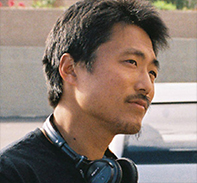
ATSUSHI FUNAHASHI was born in Osaka, Japan, and graduated from Tokyo University with a B.A. in cinema studies. He moved to New York in 1997 arightnd studied film directing at the School of Visual Arts. His debut feature echoes (2001) won three jury and audience awards at Annonay International Film Festival in France. His second film, Big River (2006), was produced by Office Kitano, shown at various film festivals (including Berlin, Pusan, Karlovy Vary, Sao Paolo, and Shanghai), and was distributed worldwide. He also won the Telly Award (US) with his tv documentary "For the Joyful Moment of Life(2005)". Funahashi moved back to Tokyo in 2007 and has started directing films and television dramas in Japan. "Deep in the Valley(2009)", "Nuclear Nation(2012)", and "Cold Bloom (2013)" are all premiered at Berlin International Film Festival. "Nuclear Nation" is Atsushi's first documentary film on Fukushima's nuclear crisis and the shoot is continuing as the disaster hasn't come to the end. The film has been premiered in numerous film festivals and theatrically released in the US, France and Japan.
Please note all photos below with copyright credits; ©2014 Documentary Japan, Big River Films
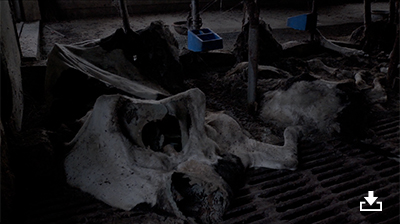 |
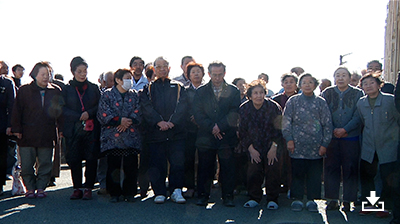 |
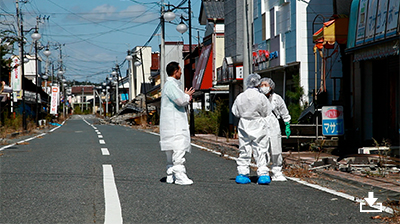 |
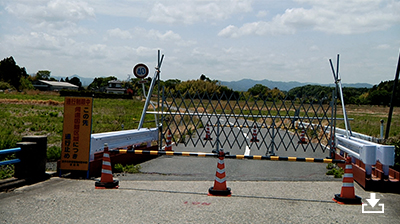 |
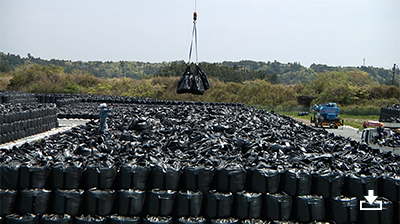 |
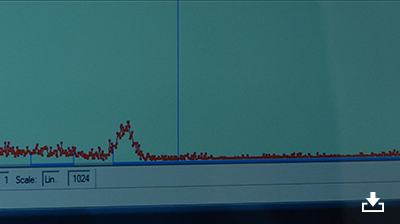 |